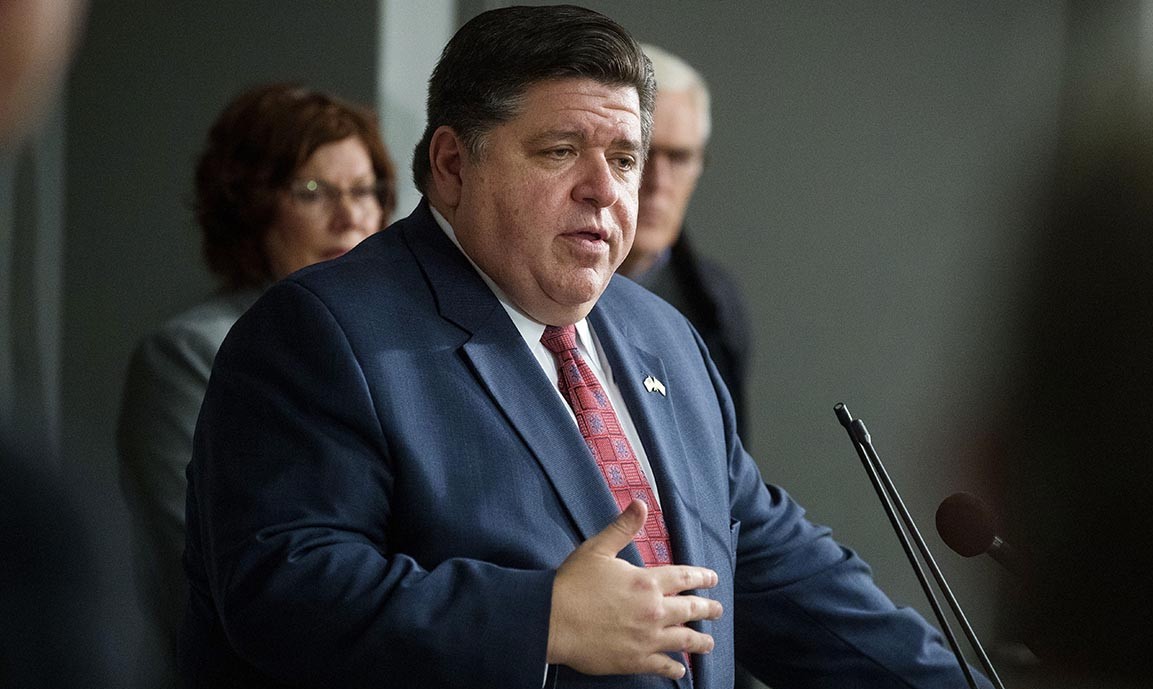Governor Pritzker Suspends In-Class Learning for Remainder of the School Year
Published on April 17 2020 2:26 pm
Last Updated on April 17 2020 3:48 pm
Written by Greg Sapp
Governor JB Pritzker Friday announced that in-person learning in schools will not resume during the 2019-2020 school year, with remote learning days to continue for all pre-K through 12th grade students.

“I’ve said time and time again, our decisions must follow the science and the science says our students can’t go back to their normal routine this school year,” said Pritzker. “Over the last month, Illinois’ schools have stepped up and faced the many challenges of COVID-19 with generosity, creativity, and a resolute focus on caring for students, parents and communities. I am confident that our schools will manage and expand the learning opportunities for all our children who will be working from home over the coming weeks.”
The governor is working with the Illinois State Board of Education (ISBE) to identify and provide the flexibility that school districts need to address the challenges of the COVID-19 pandemic. Illinois will receive approximately $569 million in federal funding for pre-K-12 schools, as part of the Coronavirus Aid, Relief, and Economic Security (CARES) Act. The funding can help equip students with technology and internet access to enhance remote learning, support teachers in developing their remote instruction skills, and assist schools in continuing to provide meals to children and communities.
Each public school district will receive CARES Act funding proportional to the number of low-income students they serve. ISBE also will receive CARES Act dollars as the state education agency. State Superintendent of Education Dr. Carmen I. Ayala has committed to directing CARES Act resources toward tackling the digital divide in Illinois’ least-resourced districts, as part of a strategic effort that will continue beyond the COVID-19 pandemic.
Illinois has taken advantage of other federal waivers and opportunities to help schools meet the need of Illinois’ families. ISBE secured the waiver early on to allow schools to serve meals in creative ways outside of school. ISBE has worked with the Illinois Department of Human Services to prepare for the implementation of the Pandemic-EBT, which will supply families with additional funds for purchasing food during the crisis. ISBE also secured waivers to allow schools to carryover federal funds for low-income students to support their transition back to classroom this fall.
Each public school district in Illinois has developed and implemented a plan to ensure all students have access to instruction and to their teachers during Remote Learning Days. ISBE convened an advisory group of teachers, superintendents, and students to develop comprehensive Remote Learning Recommendations for all grade levels, including suggestions on grading, content selection and delivery, social-emotional development, and communication with families. The recommendations are available in English, Spanish, Polish, and Arabic at www.isbe.net/covid19.
ISBE has encouraged each school to determine a local method of taking attendance or checking student engagement. Daily virtual contact with students helps teachers understand when students may need additional support with assignments, meals, mental health, or other needs. ISBE also will release recommendations to schools to address learning loss and students’ social-emotional needs when students transition back to in-person instruction.
The governor also waived the edTPA and student teaching requirement for educator candidates who have completed all other requirements for licensure. These and other emergency changes to educator licensure will ensure that the COVID-19 does not impact local school district’s ability to hire qualified educators they need to support students.
Lastly, the governor and his administration amended graduation requirements for high school seniors, in recognition of the impact of the COVID-19 crisis on their final semester. For example, current high school seniors may graduate without the normally required participation in consumer education and physical fitness assessment.













